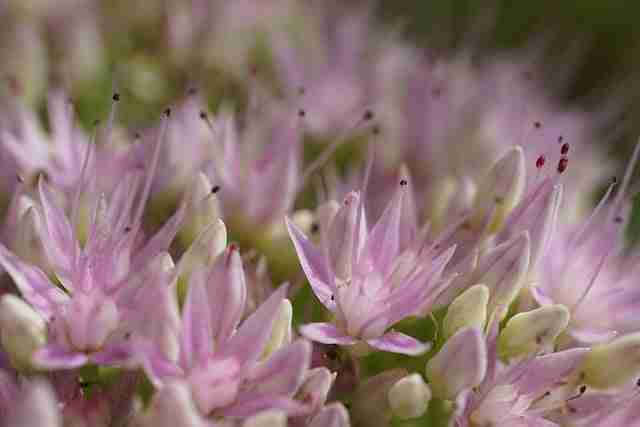Do Rabbits Eat Gladiolus? (What You Need To Know)
If you own a gladiolus garden and have rabbits in your area, you may be concerned about the safety of the plant. We all know rabbits eat most plants they come across, especially in a garden. But what about gladiolus? Do rabbits eat gladiolus?
Rabbits typically don’t eat gladiolus as they are not attracted to the plant. So they are less likely to cause any serious damage to your flowers. However, it’s still a good idea to pay attention to your gladiolus plant and protect it if necessary.
As with most rodents, rabbits are flexible with their diet and can be unpredictable. In other words, they can eat almost anything, including plants that are ordinarily rabbit-resistant. In this article, I will go over some of the best ways to protect your gladiolus from possible rabbit invasion.

Are Gladiolus Rabbit Resistant?
Yes, gladiolus may be considered rabbit-resistant. Some species have a strong scent and bitter taste, which deter rabbits. Also, the outside of the plant is hardy, and the leaves are quite rough. Rabbits generally avoid plants that have a rough texture.
This means your gladiolus is relatively safe from rabbit attack. But I won’t count on it, especially during periods of scarcity, because wild rabbits and deer will make a meal of almost any plant they come across. This is why you should protect your gladiolus at all times.
It is worth mentioning that some gladioli, such as the large florists, have no scent, while many smaller variants have a nice fragrance. A good example is the gladiolus martleyi, which is common in autumn.
Do Rabbits Eat Gladiolus Bulbs?
Wild rabbits typically don’t search out gladiolus bulbs as it’s not part of their natural diet. However, they may occasionally sample the bulbs while foraging, especially when they are hungry.
I have often seen rabbits and squirrels digging up gladiolus corms, especially during summer. This could happen despite the toxicity of gladiolus to rabbits. Well, you should already know by now that some wild rabbits have strong stomachs and may not let any foliage escape them.
Besides rabbits, voles and mice may also eat a significant amount of gladiolus corms during the cold winter months. A simple but effective way to keep the rabbits away is to plant your gladiolus in a container out of reach. But this might not always be practical.
Are Gladiolus Poisonous to Rabbits?
Gladiolus belongs to the iris family, which means it’s mildly poisonous to small pets, especially rabbits. So, if you keep a rabbit as a pet, it won’t be a good idea to feed it with gladiolus, whether it’s leaves or bulbs.
If a rabbit eats a good amount of gladiolus, it can show signs of illness, such as loss of appetite, drooling, lethargy, diarrhea, pain in the abdomen, and, in worse cases, dehydration. If you notice these symptoms, I highly recommend taking your bunny to the vet.
Besides rabbits, cats and dogs can also experience these symptoms when they eat gladiolus.
How to Keep Rabbits from Eating Gladiolus
Wild rabbits can cause severe damage to gladiolus if you give them a chance. So, it’s important you treat them as a pest, which means setting up deterrents to keep them away. Here are 3 main methods I recommend:
Repellent spray
Most pests can be removed from a place using pesticides or repellents. These could be natural or commercially available. I personally recommend using a commercial repellent as it’s more effective.
Most rabbit repellents have a scent or taste that rabbits don’t like. They can come in powder or spray form. I usually prefer the spray form as it’s a lot easier to use. For the best rabbit repellent, I would recommend the SUAVEC DEER RABBIT REPELLENT. It works for rabbits and deer and doesn’t harm your gladiolus.
Fencing
Another thing you could do to keep rabbits from your gladiolus is to build a fence around the plant. Most rodents typically don’t jump above four feet. This means if you can set up a fence that is higher than this, you would be able to keep them away.
It’s important you use a fence that allows the plant to “breathe.” That is why I recommend the YARDGARD GARDEN FENCE.
Urine
Urine can also be used to deter rodents, especially rabbits and rabbits. All you need to do is to spray the urine of a predator, and when the rabbit smells it, it will stay away.
Don’t worry; you don’t need to get the urine of a fox or cat unless you actually have it. There are many commercial predator urine sprays available, which will give off the same smell as the real uring of the animal.
A good example is the Predator Pee Mountain Lion Urine Spray. When you spray this around your gladiolus, it will make any approaching squirrel or rabbit think a lion is close by and will run off. There are many other urine sprays of different predators, such as foxes, cats, etc.
Vinegar
You can also employ the tart odor of vinegar to keep rabbits away from gladiolus. Simply mix apple cider vinegar with water and pour in a spray bottle, then spray around the plant. The smell is usually so strong that rabbits don’t want to be anywhere close to it.
Other Interesting Topics:






